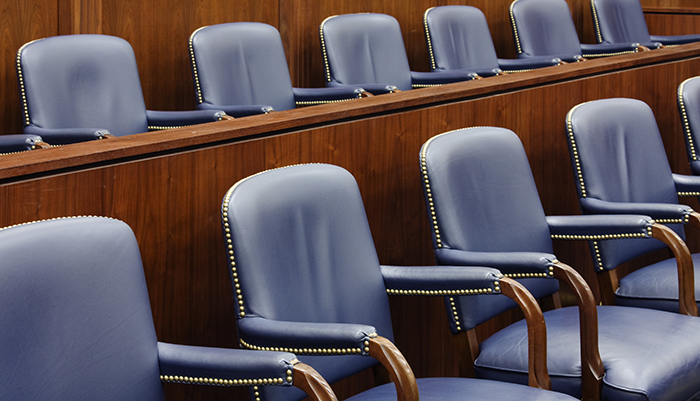If you watch a lot of crime dramas on television, then you may have heard the term Voir Dire thrown around in the courtroom setting. But do you know what it means or why it is important? According to the Cornell University’s website, Voir Dire (pronounced /ˌvwär ˈdir/), is a French term meaning “to speak the truth.” It is the process of interviewing potential jurors to determine if they are suitable to serve on the jury. The same term also applies to the process of interviewing potential witnesses to determine their competence to testify. This makes it a very important process for both the prosecution and the defense. It works to ensure that all jurors are fair and impartial.
What Voir Dire Entails
According to the American Bar Association website, there are three main components of voir dire. These components form the basis for understanding who would be a good or bad juror for your client. Those components are:
- Background: what sort of occupation, education, or socio-economic status do your potential jurors have that may affect their decisions
- Experiences: what sort of past experiences or trauma do your potential jurors bring to the table. How do those experiences color how they view the case, the evidence, or your client?
- Beliefs or Values: what are the things the potential juror holds near and dear that will provide the lens through which they view the case and all involved
It is important to remember that everyone has their own biases and opinions through which they view the world. Some people may not even be entirely aware of their own biases. But it is the job of the attorneys in the case to determine who can best provide a fair and impartial trial. To that end, there are certain tips to follow in order to have a successful voir dire, according to Jeffery T. Frederick, director of Jury Research Services National Legal Research Group, Inc.
Tips
- Approach the voir dire process as a conversation rather than an interrogation.
- Explain the process to the potential jurors, stressing honesty and openness.
- Find ways to get the potential jurors talking, whether following up on initial background summary questions or having jurors raise their hands in response to certain questions.
- Ask open-ended questions that allow jurors to divulge more information in response to a question rather than just yes/no.
- Be careful when wording questions to avoid triggering a certain response, such as the juror wanting to “look good” with how they answer.
- Jurors have difficulty recognizing and admitting to their biases. Focus more on the behavioral manifestation of certain biases for a more honest answer.
- If you have reason to believe that a juror holds a negative opinion that has not yet come to light, ask pointed questions to reveal more detail.
- Keep potential jurors participating by mixing up the types of questions with majority response questions and springboard questions that allow you to use one juror’s answer to fuel another juror’s question.
- Persistence is key. If you have not had enough participation by certain jurors, ask questions to them directly. This also demonstrated to other potential jurors that they cannot hide from the voir dire process either.


